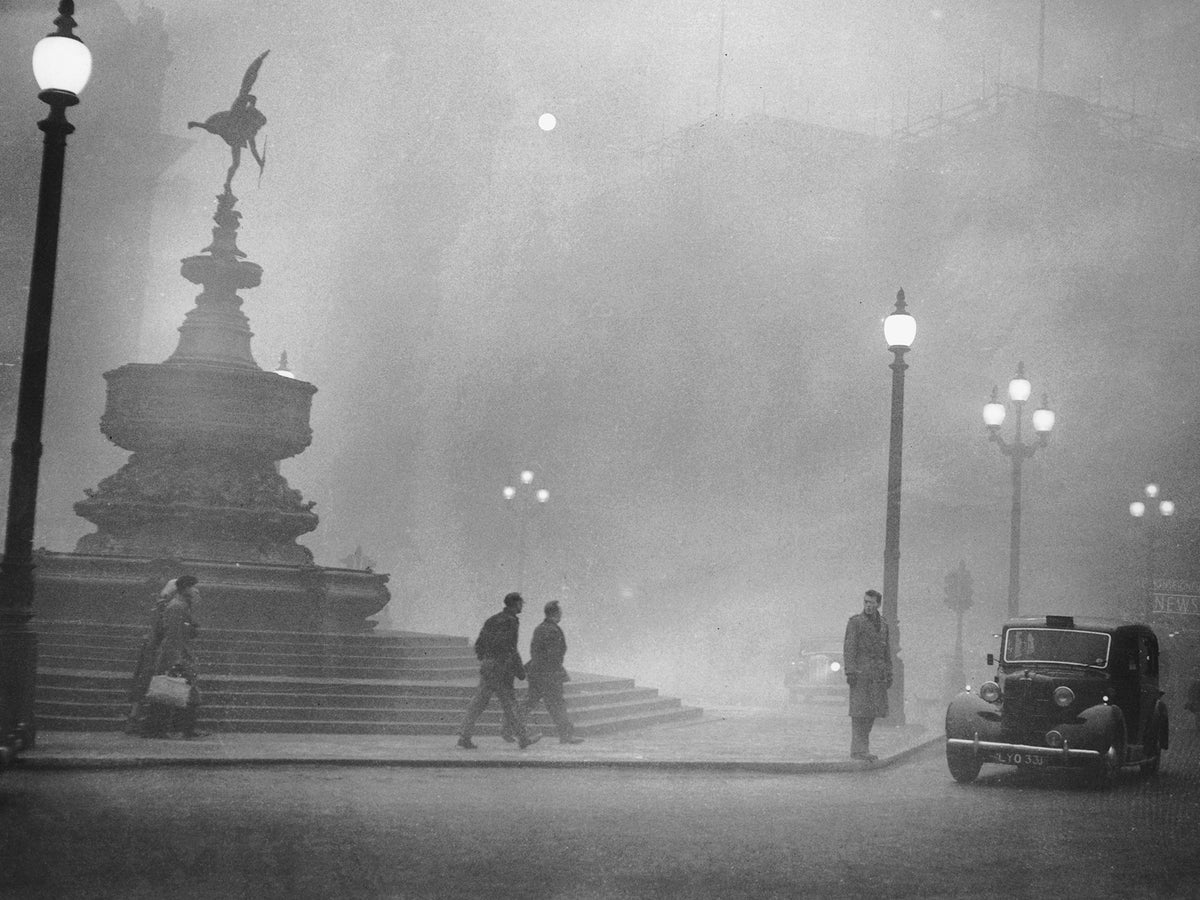
It was the news that toxic air pollution particles had been found in the lungs and brains of unborn babies that did it. I am child-free by choice and have about as much maternal instinct as Matilda’s Miss Trunchbull, yet this disturbing new research literally stopped me in my tracks. The dystopian future climate activists and scientists had warned us about suddenly felt ominously close – and it made me want to flee the capital for pastures green and rolling.
The groundbreaking research from the University of Aberdeen and Hasselt University in Belgium is far from the first piece of jarring data about the impact of pollution in dense urban spaces. In July, the Committee on the Medical Effects of Air Pollutants found that air pollution is likely to increase the risk of developing dementia and accelerated “cognitive decline” in older people. Scientists at Colorado University, Boulder, also found a link in September between inhaled pollutants and an increased risk of allergies, diabetes and obesity in babies. An October study found that air pollution could contribute to obesity in middle-aged women, while in early November, the World Health Organisation (WHO) warned that world mayors must act now to cut pollution or more people will die.
With 3,000 parks and green spaces – 47 per cent of it constitutes the stuff – London is one of the greenest cities in Europe. The mayor of London’s environmental strategy includes a pledge to “turn London 50 per cent green by 2050” and to make London’s transport system zero emission. Yet last week, car pollution levels in the city reached their highest since the start of the pandemic in 2020. As cars ground to a halt and people were forced indoors as part of the national lockdown, nature breathed a sigh of relief as carbon emissions from public transport and factories ground to a halt. Now, it seems that one of the few good things to arise from the pandemic is over. As for me, I’m worried about opening my bedroom window.
Since time immemorial, people have flocked to capital cities seeking employment, love, new starts, and the freedom and anonymity that such urban spaces can offer. As a teenager growing up on a council estate in northern England, I used to fantasise about fleeing to the big smoke. London represented possibility and potential: of new people, places, opportunities and – yes – glamour! It meant freedom to be and love who I want, a not insignificant pull that continues to attract people deemed “other” by mainstream sensibilities. It’s also a large part of why I continue to stay.
But now? Twenty-two years after I first moved to the city to study, the housing market is in crisis, the gap between rich and poor is growing at warp speed, and we’re being advised against exercising outside because of “very high” levels of pollution. Worst of all, people are dying.
According to the WHO, air pollution kills an estimated seven million people worldwide each year, while 99 per cent of the world breathes air that exceeds WHO-guideline limits. While people in the majority world suffer the highest exposure, it’s happening closer to home, too. Nine-year-old Ella Kissi-Debrah died in 2013 from an asthma attack caused by air pollution. Growing up just 25 metres from the South Circular road – a major traffic route circumventing the capital – she suffered multiple seizures and was admitted to hospital 27 times before her death. In 2020, a coroner ruled that Ella had been exposed to “excessive” levels of pollution, making her the first person in the UK to have this listed as a cause of death.
Following the landmark inquest, the coroner recommended that the UK bring its “far higher” threshold for fine particulate matter (PM2.5) – a type of damaging air pollutant – in line with the World Health Organisation’s to reduce its number of air pollution deaths. The Environment Act of 2021 introduced a duty on the government to bring forward at least two air quality targets by October 2022. These include a pledge to reduce the annual average level of fine particulate matter (PM2.5) in ambient air, plus a long-term target that the government says “will encourage long-term investment and provide certainty for businesses and other stakeholders”.

In a statement to parliament on 28 October, however, the secretary of state for the environment, food and rural affairs, Therese Coffey, announced that the government would not be able to meet these targets “as required by the Act”. She added: “I would like to reassure this House and all interested parties that we will continue to work at pace in order to lay draft statutory instruments as soon as practicable.” It’s almost as if an issue that disproportionately impacts those living in poverty isn’t a priority.
While the government continues to drag their feet on an issue that London mayor Sadiq Khan described as “a matter of life and death”, London residents continue to breathe air so dirty it breaks international laws.
Though the city continues to be a source of inspiration, pleasure and freedom, it’s getting harder and harder to ignore the warning signs that, like a bad relationship, it’s becoming increasingly bad for our health. Everyone who wants to come to this exhilarating place should have that opportunity, without having to worry that an invisible health hazard could leave them with irreversible damage to their wellbeing. Nothing short of top-down, urgent interventional measures are required to keep this special city safe.
Gazing at the car-clogged arteries of the city I fell in love with, I take a puff of my inhaler and dream of clean, grassy meadows.







